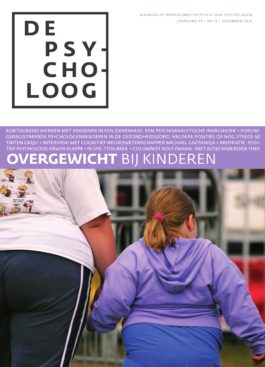‘Ik heb anderhalf jaar meegelopen op de overgewichtpoli, coach (Center of Obese Adolescents and Childrens Healthcare), van het Maastricht Universitair Medisch Centrum. Daar herkende ik in de praktijk wat ik in mijn proefschrift heb onderzocht.’
Overgewicht en obesitas bij kinderen is – letterlijk – een uitdijend probleem. Het percentage kinderen met overgewicht en obesitas is vanaf 1980 sterk gestegen (Schokker et al., 2006; Schönbeck et al., 2011; Van den Hurk et al., 2007)16. Schönbeck en collega’s (2011) maakten gebruik van data van de Nederlandse Groeistudies uit 1980, 1997 en 2009. In 2009 had 12.8% van de Nederlandse jongens en 14.8% van de Nederlandse meisjes in de leeftijd van twee tot 21 jaar overgewicht; en 1.8% van de jongens en 2.2% van de meisjes hadden obesitas. Vergeleken met 1980 is dit een twee tot drie keer hogere prevalentie van overgewicht en een vier tot zes keer hogere prevalentie van obesitas.
Overgewicht ontstaat door een verstoring van de energiebalans: de energie-inname uit eten en drinken is groter dan het energieverbruik voor basale





